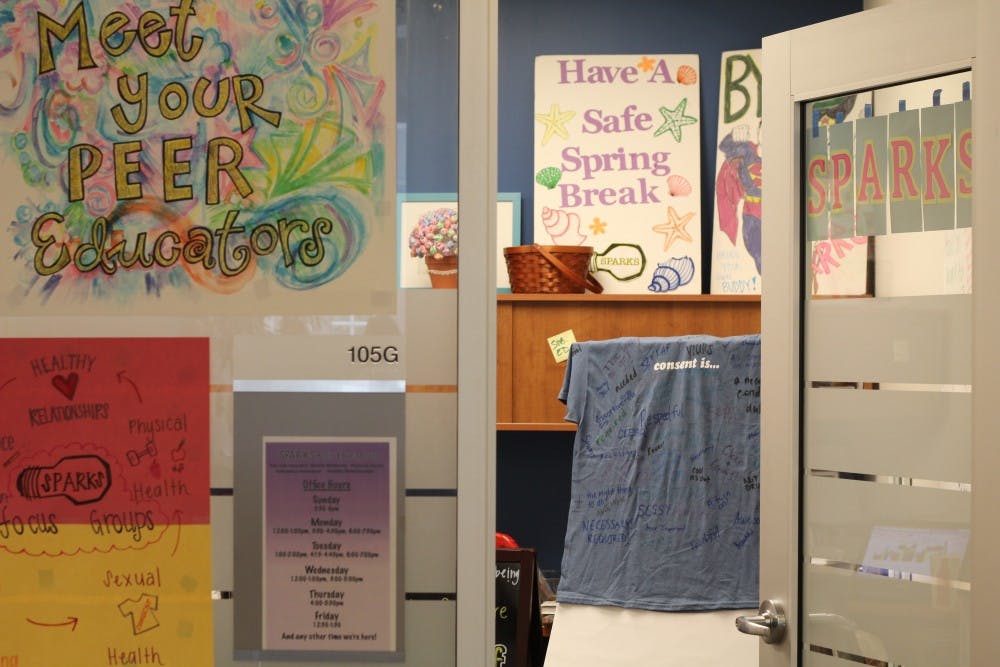“Consent is sexy.” “No means no.” “Got consent?”
Activists involved in efforts to prevent sexual assault have used these and countless other phrases to spread awareness of the importance of consent. But a new one has entered the mix, and it has legislation behind it.
“Yes means yes” is the nickname given to affirmative consent policies enacted on college campuses in California and New York. These laws, passed in 2014 and 2015, respectively, take a new angle on issues of consent and sexual assault on college campuses, but they’re not the perfect solution. “Yes means yes” is another step forward, just another entry point into the constantly shifting conversation about consent.
At Elon University, the consent conversation can seem one-sided. A select number of organizations are heavily involved in it, and while their voices are heard by most of campus, there needs to be more. A policy that affects the whole school should be discussed by the whole school, and more community members need to make an active effort to educate themselves on consent and how they apply it.
California State Senator Kevin De Leon, who pushed the affirmative consent bill through the California Senate, has said that the new policy will lead the nation in creating healthy environments for college students. But it’s not as innovative as he may think.
“I don’t see it as that different from how we currently teach consent,” said Becca Patterson, coordinator for health promotion at Elon. “I think the ‘yes means yes’ initiative comes from a really great place.”
“But it can’t be the only thing we talk about,” she added.
Students Promoting Awareness, Responsibility, Knowledge, and Success (SPARKS) is a student organization of peer educators who teach students about healthy lifestyle choices, including those related to consent and sexual assault. They go beyond basic consent policies and teach the components of consent so students can better understand it, especially when policies are vague or even nonexistent, as they often are.
The North Carolina General Statues’ Chapter 14 — Criminal Law — provides no definition of consent.
The California Penal Code defines consent as “positive cooperation in act or attitude pursuant to an exercise of free will.” And in 2014, California’s senate added the section popularly known as “yes means yes,” to the state’s Education Code.
The new section states that, in order to receive state funds for student financial assistance, public and private postsecondary institutions must enact an affirmative consent policy that requires “affirmative, conscious, and voluntary agreement to engage in sexual activity.”
New York recently passed similar laws for its public and private college campuses. Other states have yet to do the same, and in North Carolina, there are no laws regarding consent policies for postsecondary institutions.
Luckily, Elon’s definition of consent is more comprehensive than North Carolina’s. In the Student Handbook, consent is defined as “voluntary, intentional agreement to engage in a particular sexual activity.”
But Elon’s consent policy isn’t the perfect solution, either. There may not be a perfect solution. And finding a perfect solution shouldn’t be the goal of prevention efforts, because every situation and every individual is different. The goal should be encouraging conversations that allow for a deeper understanding of the implications of consent.
The university needs to clarify its definition of consent and continue to promote conversations about consent. Students need to be prepared to take part in these conversations and think seriously about how they apply consent to their lives.
Consent can be a difficult idea to grasp. And as an abstract topic, it can be even more difficult to apply to real life. But it needs to be more than a catchphrase — it needs to be a conversation. It needs to be something students put the same effort into understanding as they do topics from class. It can’t be something that only comes up at special events, not in a country where there is a rape every 21 hours on a college campus.
October is Domestic Violence Awareness Month (DVAM), and as usual, various organizations across campus are hanging ribbons, making banners and setting up Moseley tables.
But let’s make this DVAM different than the others.
Let’s use the steps “yes means yes” has taken to take a few steps of our own forward by applying the consent policies we hear about to our real lives. Consent isn’t just a hot topic, and it isn’t an unchanging ideal. It needs to be seriously considered and discussed.


